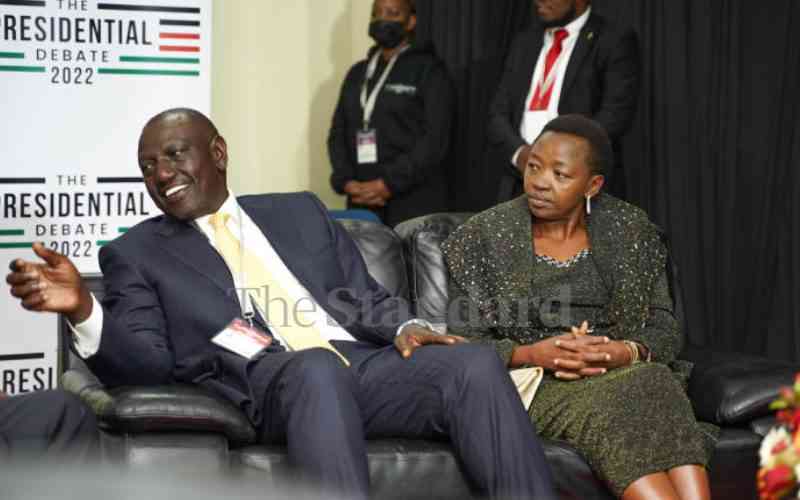
While concluding Tuesday night's debate-turned-interview, Deputy President William Ruto said Azimio presidential candidate Raila Odinga, his main rival in the August 9 election, was afraid because he is "not the real candidate".
Mr Odinga would have had the chance to counter the DP's assertions had he attended the debate. That and many other claims Mr Ruto raised against him, such as the suggestion that the former PM's handshake with President Uhuru Kenyatta had "sabotaged" the Jubilee administration's agenda and that it had mooted a wider conspiracy to "punish" the DP.